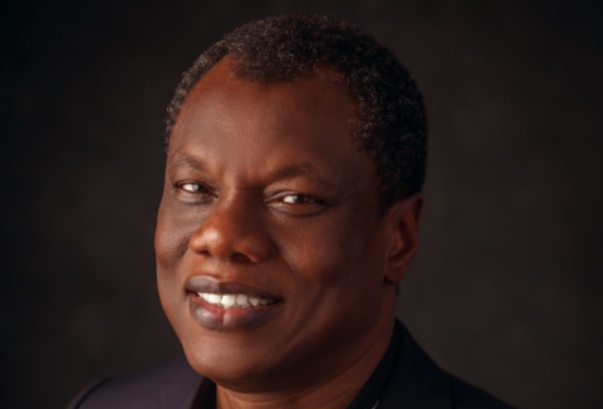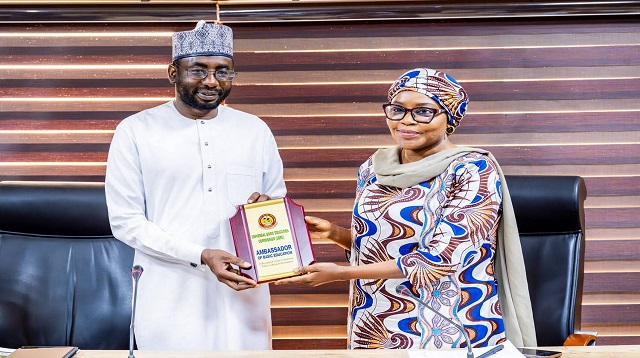E-Business
Nigeria and Oil: Looking Beyond Price Collapse Towards Post Recovery Savings (Part 1)

By Austin Okere
On April 20, 2020 the screaming headlines on CNN was that the price of WTI crude oil had fallen by 306% to $-37.63 per barrel, the first time on record that oil price has hit negative territory. It is surreal how things come around.

I wrote this article on April 20, 2016 after the colossal collapse in Oil prices – and surprised how relevant it is even today.
What was our experience as a country, what did we learn from it and how is it that we have once again been caught desperately unawares?
Below is the first part of the article.
The recurrent mistake we keep making as a Nation is failing to anticipate and plan for our oil windfalls. There have been many boom opportunities since Nigeria joined the Organisation of Petroleum Exporting Countries (OPEC) in 1971; Oil prices increased by 400% in six short months after the Yom Kippur War following the Arab Oil Embargo. Crude prices doubled from $14 in 1978 to $35 per barrel in 1981 following the Iran/Iraq war.
The price of crude oil spiked in 1990 with the uncertainties associated the Iraqi invasion of Kuwait and the ensuring Gulf War – the so called ‘Gulf War windfall’ under then Head of State Ibrahim Babangida. Data from the U.S. Energy Information Administration shows that the latest windfall happened between February 2011 and August 2014, under the Goodluck Jonathan presidency, when oil prices were much in excess of $100 per barrel.
Another golden opportunity was squandered, characterised by organised kleptocracy of epic proportions as has now come to light.
During this same period Saudi Arabia has amassed a whopping $593b in foreign exchange reserves and has recently announced that it is creating a $2 trillion mega-sovereign wealth fund, funded by sales of current petroleum industry assets, to prepare itself for an age when oil no longer dominates the global economy.
Coming closer home, Algeria, the second biggest African oil producer, with 1.9mbpd has accumulated foreign reserves of $156b and a sovereign wealth fund of $50b. Nigeria, by far the biggest producer in Africa with 2.5mbpd has only managed foreign reserves of $28b and a sovereign wealth fund of a paltry $2.9b – about 5% that of Algeria.
The major difference being that while the Algerians saved for a rainy day during the boom years, Nigeria was busy squandering her wealth, with nothing to show by way of infrastructure or any solid investments.
Yet Nigeria was able to balance her budget, pay off her debts and save over $62b in foreign reserves during the Obasanjo presidency from 1999 to 2007, even though the price of crude was mostly under $40 per barrel, except for the two years between 2005 and 2007 when it hovered between $50 and $75 dollars per barrel.
It is bothersome that with the same level of oil price, Nigeria today is struggling to balance her budget and has resorted to aggressive borrowing to finance the deficit, inadvertently driving us back to where we were before escaping from the huge burden of sovereign debt and the attendant debilitating impact of debt servicing.
I believe that Nigeria can save as much as $36.5b in the coming year if oil prices recover towards the end of 2016 and through 2017 to the projected $80 per barrel. This assumes we have all agreed that the current crises is much too painful and too precious to waste.
It can actually be a blessing in disguise, affording us the much needed leverage to deliberately diversify our economy away from the over dependence on oil, and attempt to become self-sufficient in every low hanging opportunity such as feeding ourselves.
There is a reason why the Chinese use the same word for challenge and opportunity; behind every challenge is an opportunity. We must seize this golden opportunity with both hands and make the structural changes that will lead us to true prosperity as a nation.
Almost every third Nigerian businessman you come across claims to be into Oil and Gas; usually, briefcase contractors who manage to have their ‘papers’ stamped, and proceed to collect money from the treasury of our commonwealth. Yet oil contributed only 6.4% to GDP growth in 2015.
An often overlooked area for rapid economic growth is telecoms, entertainment and media. At a recent event in Lagos, Dr. Doyin Salami, lecturer at Lagos Business School, remarked that ‘The telecommunication sector grew Nigeria’s GDP by 8.7% in 2015, generating spill overs, with uptakes in financial transactions technology and payment systems, e-commerce facilitation and proliferation of transport services, while making the offering of the burgeoning entertainment industry ubiquitous’.
Quite simply, if each of the 34 million MSME’s in Nigeria could be supported with technology to improve their businesses through online presence and seamless bookkeeping to the point of employing one more staff, they would create an additional 34 million jobs, much more than the government can ever provide.
I totally agree with Dr. Salami that Nigeria’s economy has systematically and strategically diversified along the lines of technology and other services sector without Nigerians noticing. The services sector today contributes as much as 52% of Nigeria’s GDP.
Agriculture is also another sector that could do with special attention. If we strive to produce what we eat, we will not only be saving a whopping $6b from our import bill, but also provide the opportunity for inclusive growth, with the spill over effects down the value chain, from logistics and transportation to light manufacturing. But we need to make the right investments in infrastructure such as roads and rail transport linking farms with their food processors and markets.
The change that will make all this happen is not the ‘outsourced variety’ where we believe that we can carry on with business as usual, or sit back and fold our arms while only the President delivers the promised change. All hands must be on deck, and we each have to be the change we desire.
The elephant in the room question is; who says oil prices will reach $80 per barrel?
Austin Okere is the Founder of CWG Plc, the largest ICT Company on the Nigerian Stock Exchange & Entrepreneur in Residence at CBS, New York. Austin also serves on the Advisory Board of the Global Business School Network, and on the World Economic Forum Global Agenda Council on Innovation and Intrapreneurship. Austin now runs the Ausso Leadership Academy focused on Business and Entrepreneurial Mentorship.
E-Business
AI Slows Down some Experienced Software Developers, Study Finds

Contrary to popular belief, using cutting-edge artificial intelligence tools slowed down experienced software developers when they were working in codebases familiar to them, rather than supercharging their work, a new study found.

AI research nonprofit METR conducted the in-depth study, on a group of seasoned developers earlier this year while they used Cursor, a popular AI coding assistant, to help them complete tasks in open-source projects they were familiar with.
Before the study, the open-source developers believed using AI would speed them up, estimating it would decrease task completion time by 24%. Even after completing the tasks with AI, the developers believed that they had decreased task times by 20%. But the study found that using AI did the opposite: it increased task completion time by 19%.
The study’s lead authors, Joel Becker and Nate Rush, said they were shocked by the results: prior to the study, Rush had written down that he expected “a 2x speed up, somewhat obviously.”
The findings challenge the belief that AI always makes expensive human engineers much more productive, a factor that has attracted substantial investment into companies selling AI products to aid software development.
AI is also expected to replace entry-level coding positions. Dario Amodei, CEO of Anthropic, recently told Axios that AI could wipe out half of all entry-level white collar jobs in the next one to five years.
Prior literature on productivity improvements has found significant gains: one study found using AI sped up coders by 56%, another study found developers were able to complete 26% more tasks in a given time.
But the new METR study shows that those gains don’t apply to all software development scenarios. In particular, this study showed that experienced developers intimately familiar with the quirks and requirements of large, established open source codebases experienced a slowdown.
Other studies often rely on software development benchmarks for AI, which sometimes misrepresent real-world tasks, the study’s authors said.
The slowdown stemmed from developers needing to spend time going over and correcting what the AI models suggested.
“When we watched the videos, we found that the AIs made some suggestions about their work, and the suggestions were often directionally correct, but not exactly what’s needed,” Becker said.
The authors cautioned that they do not expect the slowdown to apply in other scenarios, such as for junior engineers or engineers working in codebases they aren’t familiar with.
Still, the majority of the study’s participants, as well as the study’s authors, continue to use Cursor today.
The authors believe it is because AI makes the development experience easier, and in turn, more pleasant, akin to editing an essay instead of staring at a blank page.
“Developers have goals other than completing the task as soon as possible,” Becker said. “So they’re going with this less effortful route.”
E-Business
Firm Uncovers $500K Crypto Heist Through Malicious Packages

Kaspersky GReAT (Global Research and Analysis Team) experts have discovered open-source packages that download the Quasar backdoor and a stealer designed to exfiltrate cryptocurrency. The malicious packages are intended for the Cursor AI development environment, which is based on Visual Studio Code — a tool used for AI-assisted coding.

The malicious open-source packages are extensions hosted in the Open VSX repository that claim to provide support for the Solidity programming language. However, in practice, they download and execute malicious code on users’ devices.
During an incident response, a blockchain developer from Russia reached out to Kaspersky after installing one of these fake extensions on his computer, which allowed attackers to steal approximately $500,000 worth of crypto assets.
The threat actor behind these packages managed to deceive the developer by making the malicious package rank higher than the legitimate one. The attacker achieved this by artificially inflating the malicious package’s downloads count to 54,000.
After installation, the victim gained no actual functionality from the extension. Instead, malicious ScreenConnect software was installed on the computer, granting threat actors remote access to the infected device.
Using this access, they deployed the open-source Quasar backdoor along with a stealer that collects data from browsers, email clients, and crypto wallets. With these tools, the threat actors were able to obtain the developer’s wallet seed phrases and subsequently steal cryptocurrency from the accounts.
After the malicious extension downloaded by the developer was discovered and removed from the repository, the threat actor republished it and artificially inflated its installation count to a higher number – 2 million, compared to 61,000 for the legitimate package. The extension was removed from the platform following a request from Kaspersky.
“Spotting compromised open-source packages with the naked eye is becoming increasingly difficult. Threat actors are using increasingly creative tactics to deceive potential victims, even developers who have a strong understanding of cybersecurity risks — particularly those working in the blockchain development field.
As we expect adversaries to continue targeting developers, it is recommended that even experienced IT professionals deploy dedicated security solutions to safeguard sensitive data and prevent financial losses,” commented Georgy Kucherin, Security Researcher with Kaspersky’s Global Research and Analysis Team.
The threat actor behind the attack published not only malicious Solidity extensions but also another NPM package, solsafe, which also downloads ScreenConnect. A few months earlier, three additional malicious Visual Studio Code extensions were released — solaibot, among-eth, and blankebesxstnion — all of them have already been removed from the repository.
E-Business
NITDA Reaffirms Commitment to 95% Digital Literacy by 2030, as UBEC Pledges Collaboration

Kashifu Inuwa CCIE, the Director General of the National Information Technology Development Agency (NITDA), has reaffirmed the Federal Government’s unwavering commitment to achieving 95% digital literacy across Nigeria by the year 2030, with an ambitious milestone of 70% by 2027.

This disclosure was made in total alignment with the present administration’s priority areas of reforming the economy for sustained inclusive growth and accelerating diversification through industrialisation, digitisation, creative arts, manufacturing, and innovation.
Making this known during a collaborative meeting hosted by the Universal Basic Education Commission (UBEC), Inuwa highlighted the government’s strategic prioritisation of human capital development as central to its national transformation agenda.
“We started this journey in 2023 when President Bola Ahmed Tinubu came on board and he made it clear that economic diversification and inclusivity are part of the administration’s agenda,” he noted.
“And the president outlined this in 8 priority areas to achieve the vision, with priority number 7 specifically focused on accelerating industrialisation, digitisation, creative arts, manufacturing, and innovation,” he added.
Recognising the importance of digital fluency in achieving this agenda, he stated that NITDA is committed to investing in the digital empowerment of citizens through the development of the National Digital Literacy Framework (NDLF), a strategic blueprint aligned with international best practices.
He added that to tailor the framework to Nigeria’s specific needs, 6 core competency areas were incorporated to include device and software operations, information and data literacy, communication and collaboration, content creation, safety, and problem solving.
He explained that the framework would address all levels of digital fluency, from basic, intermediate to advanced levels, to make digital skills accessible to every Nigerian, from primary school pupils to working professionals.
According to Inuwa, despite data limitations, NITDA estimates that Nigeria’s digital literacy rate currently stands at 50%, up from 44% in 2021, based on extrapolations from the World Bank’s Better Life Report.
The NITDA DG disclosed that the agency has been working closely with the Nigerian Educational Research and Development Council (NERDC) in developing a curriculum for digital literacy, which can be infused into formal education. Stating that the visit is a continuation of NITDA’s ongoing engagements with key education stakeholders, including the Federal Ministry of Education, the National Universities Commission (NUC), and the Nigerian Educational Research and Development Council (NERDC), all aimed at advancing digital literacy across all levels of learning.
Inuwa also revealed ongoing collaborations with global platforms such as Coursera to train teachers using AI-powered lesson generation tools and provide scalable online training.
It is worth recalling that late last year, NITDA partnered with the Nasarawa State University in collaboration with CISCO in launching the Digital Learning for NSUK (DL4NSUK) initiative to enhance digital literacy in tertiary institutions, and equipping graduates with the skills needed to be digitally proficient and globally competitive.
While stressing that the entire process, from curriculum development to classroom delivery, would require a whole-of-government and whole-of-society approach, Inuwa said, “This is not a journey we can walk alone; we must bring everyone on board, education stakeholders, technology providers, state governments, and international partners.”
In response to the DG’s remarks, UBEC Executive Secretary, Hajiya Aisha Garba, confirmed that the Commission has officially received the digital literacy curriculum developed by NITDA and NERDC and has commenced internal review processes.
She acknowledged the curriculum as robust and forward-looking but stressed the need for simplification to suit early learners and teachers, citing challenges such as curriculum overload, limited teacher capacity, and inadequate infrastructure as key barriers to effective implementation.
She pledged that UBEC, in partnership with the State Universal Basic Education Board (SUBEB), will lead efforts to equip schools with computers and solar-powered infrastructure to support real learning.
“We’re committed to working with NITDA and NERDC to refine the curriculum, train teachers, and ensure effective delivery. Let us align the technical vision with grassroots realities to make a lasting impact,” she concluded.
To formalise the implementation of the meeting’s resolutions, a joint inter-agency committee was established to develop strategic plans that will ensure the effective rollout of the digital literacy initiative, to equip young Nigerians with the essential digital skills required to thrive in an increasingly dynamic and technology-driven global landscape.

 Broadcasting3 days ago
Broadcasting3 days agoEFCC Re-Arraigns Echefu, TStv CEO for Allegedly Defrauding Ex-Minister of N1Bn, $1.3m

 Telecom3 days ago
Telecom3 days ago4 Dead, 20 Others Injured as Fire Engulfs Cairo Data Centre

 General News3 days ago
General News3 days agoFG Declares Admissions outside CAPS Illegal

 General News3 days ago
General News3 days agoBRICS Leaders Seek Inclusive Access to AI

 News3 days ago
News3 days agoNigeria Loses over N200Bn from SSB Tax Annually – CAPPA

 E-Financial2 days ago
E-Financial2 days agoGOEs’ Remit Over ₦2tn to FG in 2024

 Telecom3 days ago
Telecom3 days agoSiBAN Applauds Interstellar’s Groundbreaking Role in Africa’s Blockchain Future

 Telecom3 days ago
Telecom3 days agoGlobalcom Thrills Subscribers with 3 New Digital Products

























